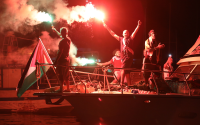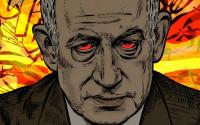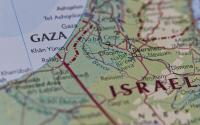13 September 2006Kim Sengupta
Soldiers deployed in Helmand province five years on from the US-led invasion, and six months after the deployment of a large British force, have told The Independent that the sheer ferocity of the fighting in the Sangin valley, and privations faced by the troops, are far worse than generally known.
"We are flattening places we have already flattened, but the attacks have kept coming. We have killed them by the dozens, but more keep coming, either locally or from across the border," one said. "We have used B1 bombers, Harriers, F16s and Mirage 2000s. We have dropped 500lb, 1,000lb and even 2,000lb bombs. At one point our Apaches [helicopter gunships] ran out of missiles they have fired so many. Almost any movement on the ground gets ambushed. We need an entire battle group to move things. Yet they will not give us the helicopters we have been asking for.
"We have also got problems with the Afghan forces. The army, on the whole, is pretty good, although they are often not paid properly. But many of the police will not fight the Taliban, either because they are scared or they are sympathisers."
British officers in Helmand acknowledge that the next few months will be crucial in this conflict, which they insist can still be won with an additional thousand extra fighting troops.
Last week General James Jones, the Nato military chief, called for 2,500 extra troops, armour and helicopters from member states. But at the Warsaw summit currently under way, the countries with significant forces, Germany, France, Italy and Turkey, say they will have their hands full with Lebanese peacekeeping duties and have no troops to spare.
The anxiety has been deepened by the decision of the Pakistani military to do a deal with militants and withdraw from some of the border areas. The government of President Pervez Musharraf said the Taliban had promised in return not to continue to cross into Afghanistan to mount attacks, a declaration that a senior British officer described as "risible".
British forces in Helmand had not originally planned to go into Sangin. But when the provincial governor, Mohammad Daoud, appealed for help from President Hamid Karzai to counter increasing Taliban activity, the US commander in the country asked British troops to move in. The result has been that overstretched forces have come under constant attack.
Lt Gen Richards, who says British forces have been involved in some of the fiercest fighting since Korea, has now decided to withdraw from outlying positions, which will be taken over by the Afghan forces. It is a decision that some have questioned. An officer who has served in Helmand said: "We have to ask, can we rely on them? Especially the police."
He continued: "We did not expect the ferocity of the engagements. We also expected the Taliban to carry out hit and run raids. Instead we have often been fighting toe to toe, endless close-quarters combat. It has been exhausting. I remember when we had to extract a Danish recce group which was getting attacked on all sides; it was bedlam. We have greater firepower, so we tend to win, but, of course, they can take their losses while our casualties will invariably lead to concern back home.You also have to think that each time we kill one, how many more enemies we are creating. And, of course, the lack of security means hardly any reconstruction is taking place now, so we are not exactly winning hearts and minds."
In the market town of Lashkar Gar, Afghan civilians are increasingly concerned about security. One man said: "We are not safe now; it is more dangerous than it was just a few months ago."
Bodies of Nimrod crash victims return home
The flag-draped coffins carrying the bodies of the 14 British servicemen killed when their reconnaissance plane crashed in Afghanistan were returned home yesterday to a sombre reception in Scotland.
A ceremony for the victims of last week's Nimrod crash, Britain's worst single loss during its current deployment, was held at RAF Kinloss in Moray. Air force chiefs and the Duke of Edinburgh joined the families of the airmen for the repatriation, at which Des Browne, the Defence Secretary, described the 14 as "outstanding, brave and dedicated".
He said: "They were working towards making Afghanistan a safe and secure place as well as protecting our nation and its interests. We owe them an enormous debt of gratitude."






